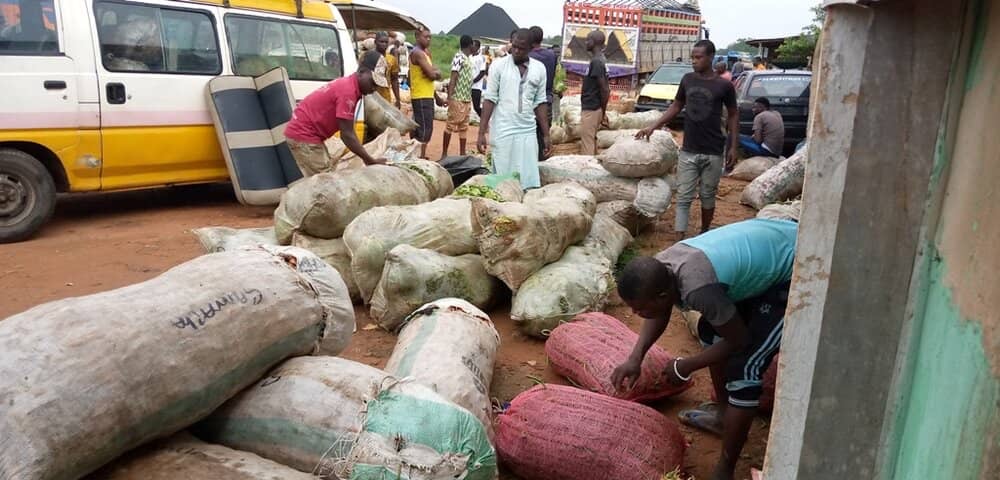Nigeria records about 40 percent post-harvest losses yearly and
needs 300 cold chain hubs (storage facilities) to reduce losses.
Prof. Lateef Sanni, Executive Director, Nigerian Stored Produce Research Institute, said on Tuesday in Abuja that Nigeria must reduce the losses to the barest minimum to achieve food security.
Sanni said that all hands must be on deck to reverse this trend by investing in storage facilities and cold chain hubs across the country.
He said the country required nothing less than 300 cold chain hubs across the 774 local government areas.
He added that in each of the 774 local government area, a minimum of 10 cold chain hubs was needed to reduce post-harvest losses.
He noted that presently, there were less than 10 cold chain hubs, which represented less than one per cent.
“We have cold chain hubs in this country that people can take carrots and other food produce to and store till the next day with as little as N500.
“The cold chain value is also developing and coming up, we have close to 10 of them in this country now. There is one in Ekotutu, Mile 12 market, Lagos.
“We have close to 10 cold hubs, but they just started, they are just about five to seven years in the country,” he said.
According to him the country needs nothing less than 300 cold chain hubs.
“We have 774 local government areas in this country, and we need nothing less than 10 cold chain hubs in each local government of this country.
“We have less than 10 that are just springing up and being supported by donor agencies and development partners from Germany and Switzerland.
“I am calling on private sector to take advantage of that opportunity and invest in this cold chain hubs to reduce our post-harvest losses.
“That is my own drive now; my drive is private sector driven to reduce post-harvest losses from 40 per cent on our agricultural produce to the barest minimum,” he said.
The executive director said NSPRI and its partners would convene the first “Post Harvest Connects” conference from April 18 to 19 in Abuja to address post-harvest losses.
He noted that there was need for collaboration and partnership between the research institutions to address food insecurity in the country.
“We thank Mr President that has put priority on storage, and we thank all our supervisors, Agricultural Research Council of Nigeria and the private sector for joining us to be able to do this.
“The Global Alliance for Improved Nutrition are major sponsor and International Institute of Tropical Agriculture (IITA).
“Mr President wants this, the Minister of Agriculture and Food Security wants this, and the executive secretary of Agricultural Research Council wishes for us to reduce post harvest losses,” he said.
According to him, the National Assembly, the Chairmen of committee on agriculture, agricultural institutions are passionate about the need to reduce post-harvest losses.
“The onus lies with the Executive Director to think through and interact with development partners, and they said yes, let’s test run it, let’s come together and work together.
“We need to articulate everything and now see which one of those programmes we can scale up.
“It is when we want to scale-up that we will talk to our ministers, government to link us to the banks and CBN to create more credit facilities for the private sector.
“With their support they will be able to scale up these investments because this will enable them to reduce all our post harvest problems in this country,” he added.
























